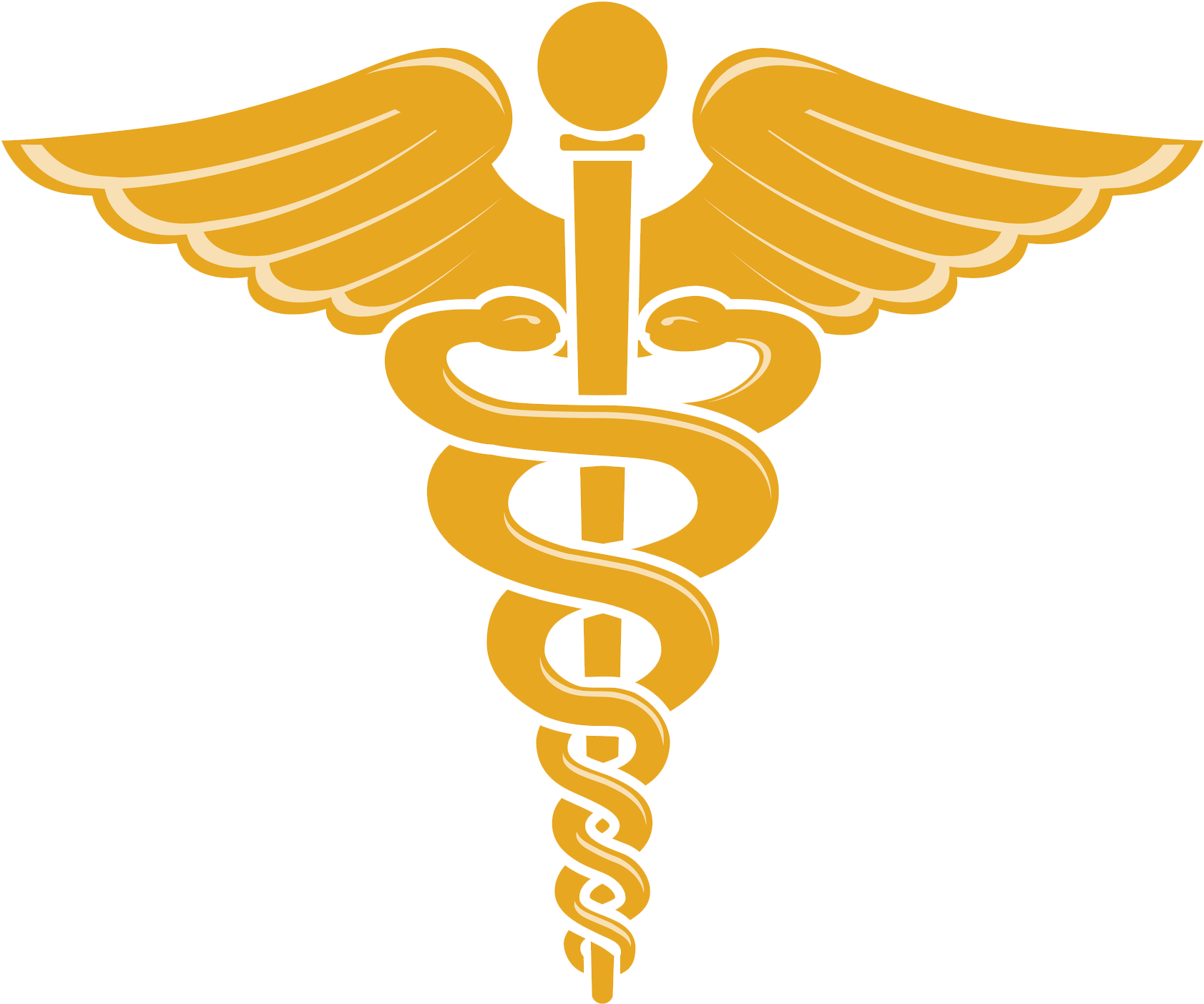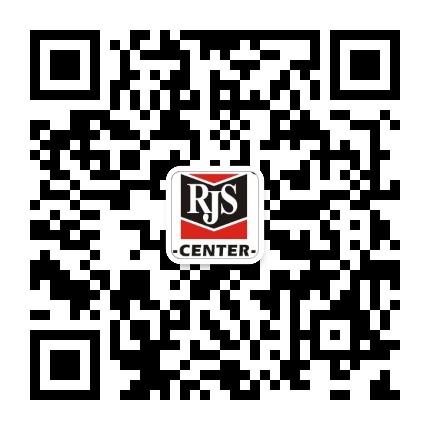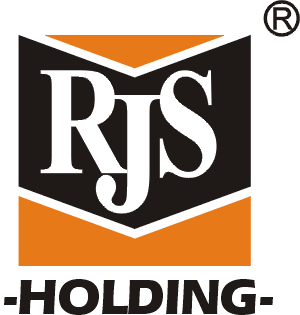REGULATIONS FOR THE IMPLEMENTATION OF THE STANDARDIZATION LAW |
| REGULATIONS FOR THE IMPLEMENTATION OF THE STANDARDIZATION LAW OF THE PEOPLE'S REPUBLIC OF CHINA (Promulgated by Decree No. 53 of the State Council of the People's Republic of China on April 6, 1990 and effective as of the date of promulgation) Chapter I General Provisions Article 1 These Regulations are formulated in accordance with the provisions of the Standardization Law of the People's Republic of China (hereinafter referred to as the Standardization Law). Article 2 Standards should be formulated for the following technical requirements that need to be unified: (1) varieties, specifications, quality and grades of industrial products or requirements pertinent to safety and hygiene; (2) methods for design, production, experimentation, examination, packing, storage, transportation and utilization of industrial products or requirements pertinent to safety and hygiene in the course of production, storage and transportation; (3) various technical requirements and methods for examination concerning environmental protection; (4) technical requirements and methods for surveying, designing, construction and examination and acceptance in building projects; (5) technical terms, symbols, codes, drafting methods and requirements for conversion and coordination concerning industrial production, project construction and environmental protection; (6) varieties, specifications, quality, grades, examination, packing, storage, transportation and requirements for production technology and management expertise concerning agricultural products (including seeds, seedlings, breeding stock and breeding poultry and those in forestry, animal husbandry and fishery; the same below); (7) technical requirements concerning information, energy, resources, and transport. Article 3 The State develops standardization undertakings in a planned way. Standardization work should be included in the plans for national economic and social development at the various levels. Article 4 The State encourages the adoption of international standards and advanced standards abroad and takes an active part in the formulation of international standards. Chapter II Administration of Standardization Work Article 5 The task for those who are in charge of standardization work is: formulating standards, organizing the implementation of standards and exercising supervision over the implementation of standards. Article 6 The competent department in charge of standardization under the State Council exercises unified leadership over the standardization work throughout the country, and it performs the following duties: (1) organizing the implementation of the State's laws, regulations, policies and measures concerning standardization; (2) organizing the formulation of programmes and plans concerning standardization work in the whole country; (3) organizing the formulation of national standards; (4) providing guidance to the relevant competent departments under the State Council and administrative departments for standardization work in the people's governments in the provinces, autonomous regions and the municipalities directly under the Central Government in their standardization work, and coordinating work in this field and dealing with problems arising therein; (5) organizing the implementation of standards; (6) conducting supervision over and inspection on the implementation of standards; (7) exercising unified leadership over attestation of product quality in the whole country; (8) taking overall responsibility for professional contacts with the relevant international standardization organizations. Article 7 The relevant competent departments under the State Council are responsible for the standardization work in their own departments or trades. They shall perform the following duties: (1) implementing the State's laws, regulations, policies and measures concerning standardization work and formulating specific procedures for their implementation in their departments and trades; (2) formulating programmes and plans concerning standardization work in their departments and trades; (3) undertaking tasks assigned by the State of drafting state standards and organizing the formulation of the standards in their respective trades; (4) providing guidance to the relevant competent authorities in the provinces, autonomous regions and municipalities directly under the Central Government in their standardization work; (5) organizing the implementation of the standards in their departments and trades; (6) conducting supervision over and inspection on the implementation of standards; (7) taking charge of attestation of product quality in their own trades on the authorization from the competent department in charge of standardization under the State Council. Article 8 The administrative departments for standardization in the people's governments in the provinces, autonomous regions and municipalities directly under the Central Government exercise unified leadership over standardization work in their respective administrative regions, and shall perform the following duties: (1) implementing the State's laws, regulations, policies and measures concerning standardization work and formulating specific procedures for their implementation in their respective administrative regions; (2) formulating local programmes and plans concerning standardization work; (3) organizing the formulation of local standards; (4) providing guidance to the relevant administrative authorities in their own administrative regions in their standardization work, and coordinating work in this field and dealing with problems arising therein; (5) organizing the implementation of the standards in their respective administrative regions; (6) conducting supervision over and inspection on the implementation of the standards. Article 9 The relevant competent administrative authorities in the provinces, autonomous regions and municipalities directly under the Central Government are responsible for the standardization work in their own departments and trades in the respective administrative regions, and shall perform the following duties: (1) implementing the laws, regulations, policies and measures concerning standardization work formulated by the State and their respective departments, trades and administrative regions and formulating specific procedures for their implementation; (2) formulating programmes and plans concerning standardization work for their own departments and trades in the respective administrative regions; (3) undertaking the tasks of drafting local standards assigned by the people's governments in the provinces, autonomous regions and municipalities directly under the Central Government; (4) organizing the implementation of the standards in their own departments and trades in the respective administrative regions; (5) conducting supervision over and inspection on the implementation of the standards. Article 10 The division of the duties of the administrative departments in charge of standardization and the relevant competent administrative authorities in municipalities and counties shall be stipulated by the people's governments in the provinces, autonomous regions and municipalities directly under the Central Government. Chapter III The Formulation of Standards Article 11 National standards (including making sample standards) should be formulated for the following technical requirements that need to be unified throughout the country: (1) requirements for standardizing commonly used technical terms; (2) technical requirements for guaranteeing human health and pers onal and property safety; (3) technical requirements for essential raw materials, fuels and processed materials; (4) technical requirements for commonly used basic spare parts; (5) commonly used methods of experimentation and examination; (6) technical requirements for commonly used management expertise; (7) important technical requirements in project construction; (8) technical requirements for the other important products that must be controlled by the State. Article 12 In formulating national standards, the administrative department in charge of standardization under the State Council shall be responsible for making plans, organizing drafting, examination and approval, numbering and promulgation. In formulating national standards for project construction, pharmaceuticals, food hygiene, veterinary medicine and environmental protection, the competent departments in charge of project construction, public health, agriculture and environmental protection under the State Council shall be responsible for organizing drafting and examination and approval in their respective departments. The procedures for numbering and promulgation shall be formulated by the administrative department in charge of standardization under the State Council in conjunction with the relevant competent departments under the State Council. Where there are, in law, provisions different from those above for the formulation of national standards, those provisions in law shall prevail. Article 13 If there are no national standards for those technical requirements which need to be standardized for certain trades throughout the country, trade standards (including the making of sample standards) may be formulated. Items of trade standards to be formulated shall be determined by the relevant competent administrative departments under the State Council. Article 14 In formulating trade standards, the relevant competent administrative departments under the State Council shall be responsible for drawing up plans, organizing drafting, examination and approval, numbering and promulgation and they should report to the administrative department in charge of standardization under the State Council for the record. Trade standards shall be null and void automatically after the corresponding national standards have taken effect. Article 15 Local standards may be formulated for the safety and sanitation requirements for industrial goods which need to be unified in the provinces, autonomous regions and municipalities directly under the Central Government, in the absence of national standards or trade standards for them. Items of local standards to be formulated shall be determined by the administrative departments for standardization of the people's governments in the provinces, autonomous regions and municipalities directly under the Central Government. Article 16 In formulating local standards, the administrative departments for standardization of the people's governments in the provinces, autonomous regions and municipalities directly under the Central Government shall be responsible for drawing up plans, organizing drafting, examination and approval, numbering and promulgation, and they should report to the administrative department in charge of standardization under the State Council and the relevant competent departments under the Council for the record. Where there are, in law, provisions different from those above for the formulation of local standards, those provisions in law shall prevail. Local standards shall be null and void automatically after the corresponding national standards or trade standards go into effect. Article 17 In the absence of national standards, trade standards and local standards for certain products, the enterprises producing such products shall formulate their own standards as the basis for organizing production. Enterprise standards shall be formulated by the relevant enterprises themselves (procedures for formulating standards for agricultural enterprises shall be provided for separately), and shall be filed for the record in accordance with the provisions of the people's governments in the provinces, autonomous regions and municipalities directly under the Central Government. Where there are already national standards, trade standards and local standards, enterprises should be encouraged to formulate enterprise standards which are stricter than the corresponding national, trade or local standards and apply them within their enterprises. Article 18 National standards and trade standards are divided into compulsory standards and recommendatory standards. The following standards belong in the compulsory category: (1) standards for pharmaceuticals, food hygiene and veterinary medicine; (2) safety and hygiene standards for products and the production, storage and transportation and utilization of products; standards for the safety of labour and hygiene standards and safety standards for transportation; (3) quality, safety and sanitation standards for project construction and other standards for project construction that must be controlled by theState; (4) standards for the discharge of pollutants concerning environmental protection and standards for environmental quality; (5) important technical terms, symbols, codes and drafting methods in common use; (6) standards for commonly used methods of experimentation andexamination; (7) standards for conversion and coordination; (8) quality standards for the important products which need to be controlled by the State. The catalogue of the important products which need to be controlled by the State shall be fixed by the administrative department for standardization under the State Council in conjunction with the relevant competent administrative departments under the State Council. Those standards which are not compulsory are recommendatory standards. The local standards for safety and hygiene requirements for industrial products formulated by the administrative departments in charge of standardization of the people's governments in the provinces, autonomous regions and municipalities directly under the Central Government are compulsory standards in their respective administrative regions. Article 19 Trade associations, research institutions for science and technology, and academic organizations should be given a role to play in formulating standards. The departments responsible for formulating national, trade and local standards should set up standardization technical committees consisting of experts from users, production units, trade associations, research institutions for science and technology, academic organizations and the departments concerned, which shall be responsible for drafting standards and examining the technical aspects of the drafts. Where standardization technical committees have not been set up, the units charged with specific responsibility for standardization technology may take charge of drafting standards and examining the technical aspects of the drafts. It is necessary to heed fully the opinions of the users and research institutions for science and technology in formulating enterprise standards. Article 20 After standards go into effect, the departments which formulated the standards shall carry out timely reexaminations in light of the development of science and technology and the needs of economic construction. Normally, reexamination should be conducted every five years, at the longest. Article 21 The procedures of coding and numbering for national, trade and local standards shall be provided for by the administrative department in charge of standardization under the State Council. The procedures of coding and numbering for enterprise standards shall be provided for by the administrative department in charge of standardization under the State Council in conjunction with the relevant competent administrative departments under the State Council. Article 22 The procedures of publication and distribution of standards shall be stipulated by the departments which have formulated the standards. Chapter IV Implementation and Supervision Concerning Standards Article 23 Any units and individuals that are engaged in scientific research, production and operation must strictly implement compulsory standards. The products which do not measure up to compulsory standards may not be allowed to be produced, marketed or imported. Article 24 Enterprises may go by the national, trade and local standards or enterprise standards in production. The codes, serial numbers and names of the standards should be marked on their products, or written in the technical manuals or on the packages. Article 25 The technical requirements for export products shall be agreed upon by the two contracting parties. When those export products which should be subject to compulsory standards of China are sold at domestic markets, they must meet the requirements of the relevant compulsory standards. Article 26 Enterprises should meet standardization requirements in developing new products, improving products or carrying out technical innovations. Article 27 The administrative department in charge of standardization under the State Council organizes or authorizes the relevant competent departments under the State Council to set up trade attestation agencies for carrying out product quality attestation. Article 28 The administrative department in charge of standardization under the State Council shall be responsible for the supervision over the implementation of standards throughout the country. The relevant administrative departments under the State Council shall be responsible for the supervision over the implementation of the standards in their respective departments and trades. The administration departments for standardization in the provinces, autonomous regions and municipalities directly under the Central Government shall be responsible for the supervision over the implementation of the standards in their respective administrative areas. The relevant administrative authorities in the people's governments in the provinces, autonomous regions and municipalities directly under the Central Government shall be responsible for the supervision over the implementation of the standards in their departments and trades in the respective administrative areas. The administrative departments for standardization and the relevant administrative authorities in municipalities and counties shall be responsible for the supervision over the implementation of the standards in their respective administrative areas according to the duties assigned to them by the people's governments of the provinces, autonomous regions and municipalities directly under the Central Government. Article 29 The administrative departments in charge of standardization in the people's governments above county level may, according to their needs, set up examination agencies or authorize the examination agencies of other units to ensure products are up to the standards and undertake other tasks of supervision and examination concerning the implementation of standards in setting up examination agencies, attention should be paid to a rational geographical allocation and making full use of the available personnel and facilities. The establishment of state examination agencies shall be planned and examined by the administrative department in charge of standardization under the State Council in conjunction with the relevant administrative departments under the State Council. The establishment of local examination agencies shall be planned and examined by the administrative departments in charge of standardization in the people's governments of the provinces, autonomous regions and municipalities directly under the Central Government in conjunction with the relevant administrative authorities at provincial level. The data provided by the examination agencies stipulated in this Article shall be taken as the criterion in solving disputes over whether certain products are up to the relevant standards. Article 30 The relevant administrative departments under the State Council may, according to the needs and relevant stipulations of the State, set up examination agencies to undertake the examination tasks in their trades and departments. Article 31 State organs, social organizations, enterprises, institutions and citizens all have the right to inform against and expose acts of violating compulsory standards. Chapter V Legal Liability Article 32 Those who violates the Standardization Law and the relevant provisions of these Regulations in one of the following circumstances shall be ordered to correct their mistakes within a set time-limit by the administrative departments in charge of standardization or the relevant administrative authorities within their respective competence, which may also circulate notices of criticism or give administrative sanctions to the persons held responsible for the violations: (1) enterprises fail to formulate standards as the basis for organizing production according to the relevant stipulations; (2) enterprises fail to report standards for products to higher authorities for the record according to the relevant stipulations; (3) enterprises fail to put marks on their products according to the relevant stipulations or put marks other than their own on their products; (4) enterprises fail to meet standardization requirements in developing new products, improving products and carrying out technical innovations; (5) provisions concerning relevant compulsory standards are violated in scientific. research, designing and production. Article 33 Enterprises that produce products which fail to meet compulsory standards shall be ordered to stop production and their products shall be confiscated, destroyed under supervision or subjected to necessary technical treatment. A fine ranging from 20% to 50% of the total value of the goods shall be imposed on the enterprises and a fine of 5,000 yuan or less on the persons held responsible. Those who sell goods which are not up to the compulsory standards should be ordered to stop their sales and recover the goods which have already been sold within a set time-limit. All the goods should be destroyed under supervision or subjected to necessary technical treatment. The illegal gains shall be confiscated and a fine ranging from 10% to 20% of the total value of the goods shall be imposed on the units and a fine of 5,000 yuan or less on the persons held responsible. If any units import goods which are not up to compulsory standards, the goods should be sealed up for safekeeping and confiscated, destroyed under supervision or subjected to necessary technical treatment. A fine ranging from 20% to 50% of the total value of the imported goods shall be imposed on the units; administrative sanctions shall be given to and a fine of 5,000 yuan or less may also be imposed on the persons held responsible. The order to stop production and the administrative sanctions provided for in this Article shall be decided by the relevant administrative authorities. Other administrative sanctions shall be decided by the administrative departments for standardization and the administrative departments in charge of industry and commerce within their competence. Article 34 Where units cause serious consequences and commit crimes by producing, marketing and importing products which fall short of the compulsory standards, the persons directly responsible shall be investigated for criminal liabilities by the judicial organs according to law. Article 35 Where products which have obtained attestation certificates and are sold with attestation marks are not up to the attestation standards, the administrative departments in charge of standardization shall order the relevant units to stop their sales and impose a fine twice the amount of the illegal gains or less. In more serious cases, the attestation departments shall revoke their attestation certificates. Article 36 If any units sell their goods with attestation marks when the goods have not been attested or have been rejected in attestation, the administrative departments in charge of standardization shall order them to stop their sales and impose a fine three times the amount of the illegal gains or less on these units and a fine of 5,000 yuan or less on the persons in charge of these units. Article 37 Litigants that disagree with penalties of confiscation of goods and illegal gains and fines, may, within 15 days of receipt of notification of such penalties, apply for reconsideration to the organs immediatelysuperior to the authorities which have meted out the penalties. A litigant that disagrees with a reconsideration decision, may, within 15 days of receipt of the reconsideration decision, file a suit with a people's court. A litigant may also directly file a suit with a people's court within 15 days of receipt of notification of the penalties. If a litigant neither applies for a reconsideration nor files a suit with a people's court nor performs the penalty decision, the department which has made the decision shall apply to the people's court for mandatory enforcement. Article 38 The penalties provided for in Articles 32 to 36 of these Regulations shall not exempt the litigant from the damages liabilities arising therefrom. Those who have suffered damages have the right to claim compensation from the persons held responsible. Damages liabilities and disputes over the amounts of compensation may be dealt with by the relevant administrative authorities and the litigants may also directly file a suite with a people's court. Article 39 Persons in charge of supervision, examination and administration of standardization work that commit one of the following acts shall be given administrative sanctions by the relevant competent authorities; if crimes result from those acts, they shall be investigated for criminal liabilities by the judicial organs according to law: (1) making errors that cause damage in violation of certain provisions of these Regulations; (2) forging and tampering with examination data; (3) engaging in self-seeking misconduct, abusing power and asking for and accepting bribes. Article 40 All the revenue derived from confiscation and pecuniary penalties shall be turned over to the state treasury. The fines imposed on units must all be paid from their own funds and may not be included in the cost. The fines imposed on the persons held responsible may not be reimbursed with public money. Chapter VI Supplementary Provisions Article 41 Regulations concerning standardization administration applicable in the Army shall be separately formulated by the State Council and the Military Commission of the Central Committee of the Communist Party of China. Article 42 Regulations concerning standardization administration for project construction shall be separately formulated by the competent department in charge of project construction under the State Council in accordance with the Standardization Law and the relevant provisions of these Regulations. They shall go into effect after the approval by the State Council. Article 43 These Regulations shall be interpreted by the State Bureau of Technology Supervision. Article 44 These Regulations shall go into effect as of the date of promulgation. |




